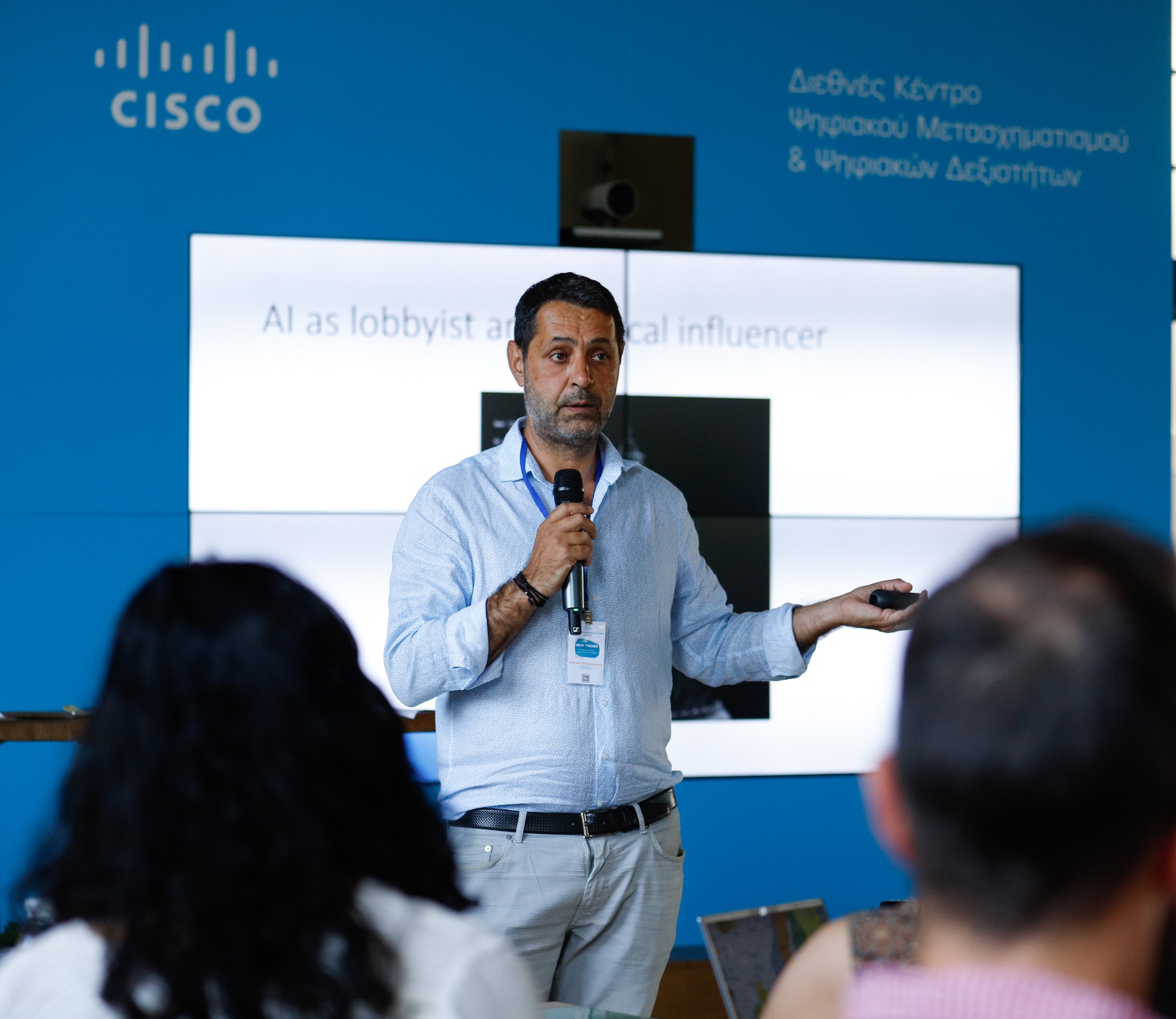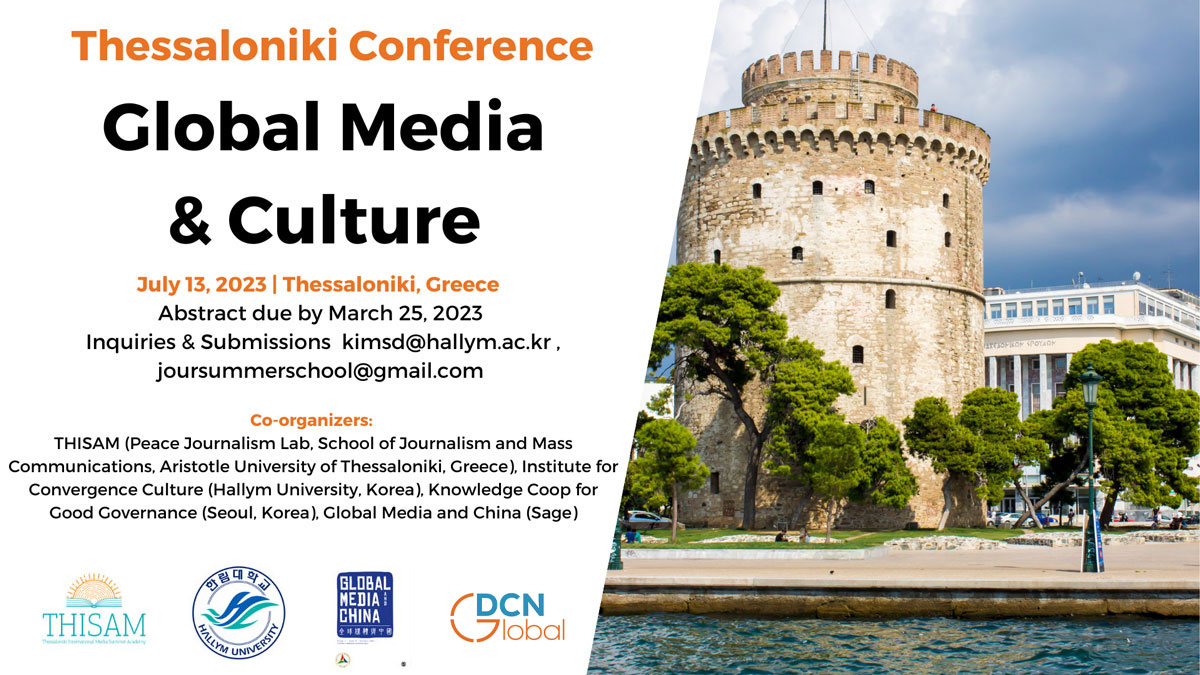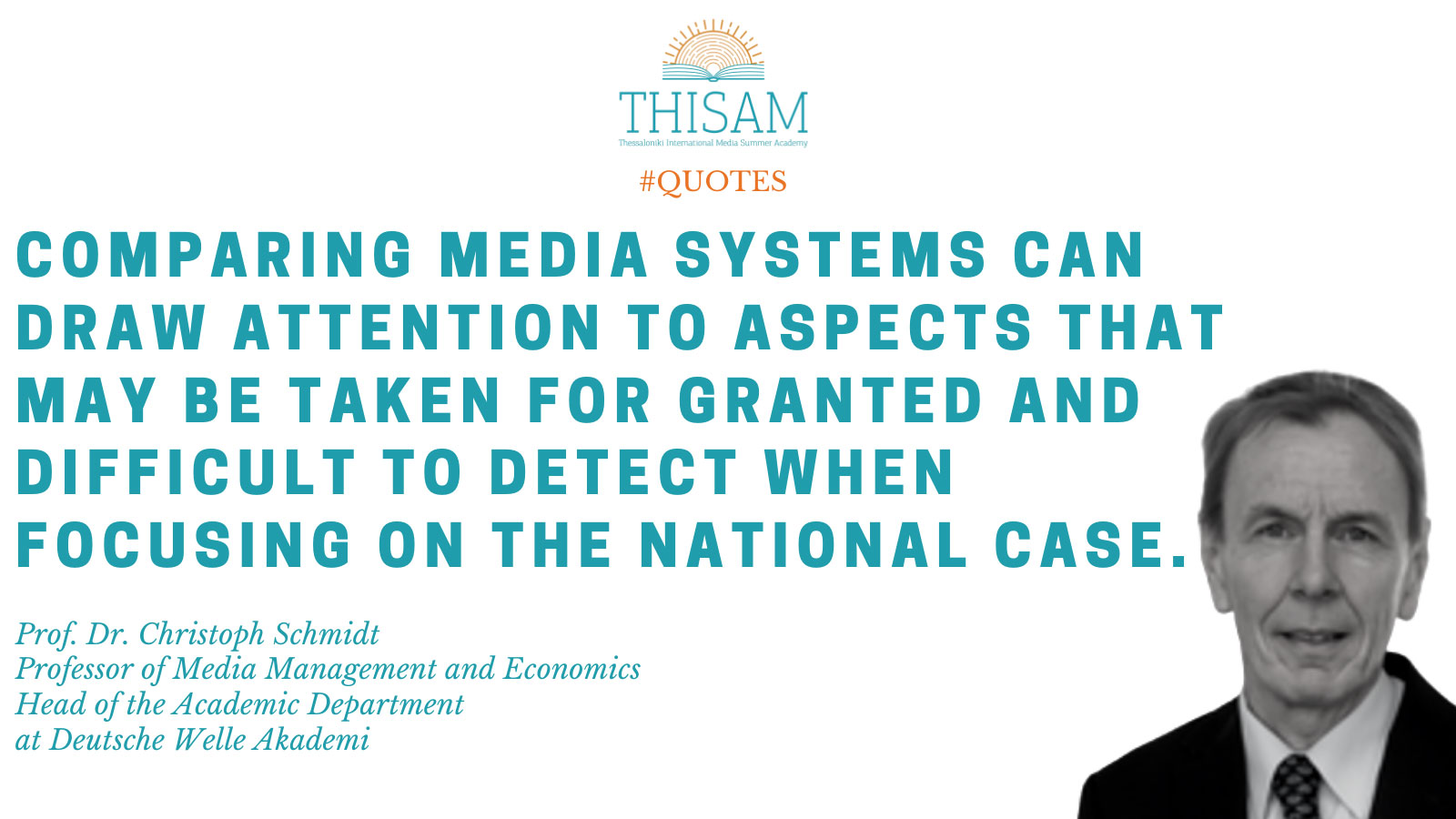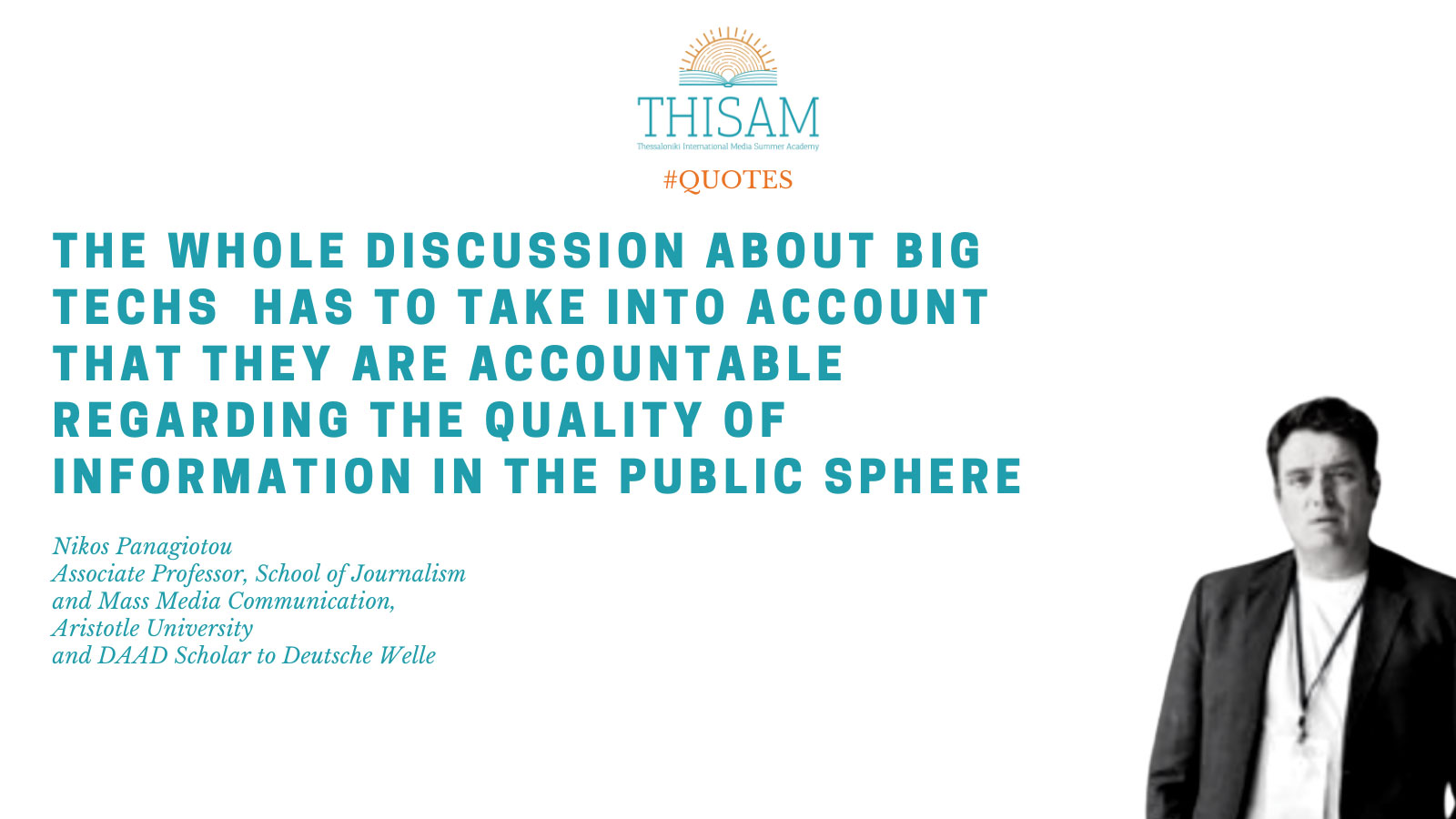By Kalliopi Konstantinidou
The International Media Summer Academy of Thessaloniki marked its seventh year this July. Over these years, it has brought together experts, distinguished professors, and knowledgeable students, all sharing their insights and viewpoints on pertinent issues within the media world. These discussions are crucial not only for media professionals but also for anyone interested in staying informed about media trends, detecting bots, and fact-checking independently.
Prior to the official start of this year's Academy, two virtual pre-Academy lectures and a conference were held. Participants from around the globe convened in Greece's second capital to exchange and integrate their knowledge on both specific and general media-related topics.
One of the standout presentations for me, as a journalist, was titled “Journalism in the Era of AI and ChatGPT,” delivered by Andreas Panagopoulos, a News Director and Journalist. Andreas discussed various topics, including Bots, AI, Google's Bard, and ChatGPT. ChatGPT, created by OpenAI, is an AI chatbot system capable of human-like conversations. Its language model enables it to assist users with tasks such as essay writing, programming, drafting emails, and creating articles. Importantly, ChatGPT's knowledge is updated up to 2021.
In contrast, Google Bard, a rival to ChatGPT, can access current information. It too generates responses to user queries, offering functionalities like drafting, coding, translating, and summarizing texts.
Andreas emphasized the importance of question formulation in journalism, highlighting how different structuring can lead to varied outcomes. He also demonstrated AI’s capabilities in image creation, such as generating realistic-looking but fake human images. Through an interactive game, he taught us to distinguish between real and AI-generated people, focusing on details like ears, hair, and backgrounds. This exercise sharpened our skills in identifying AI manipulations.
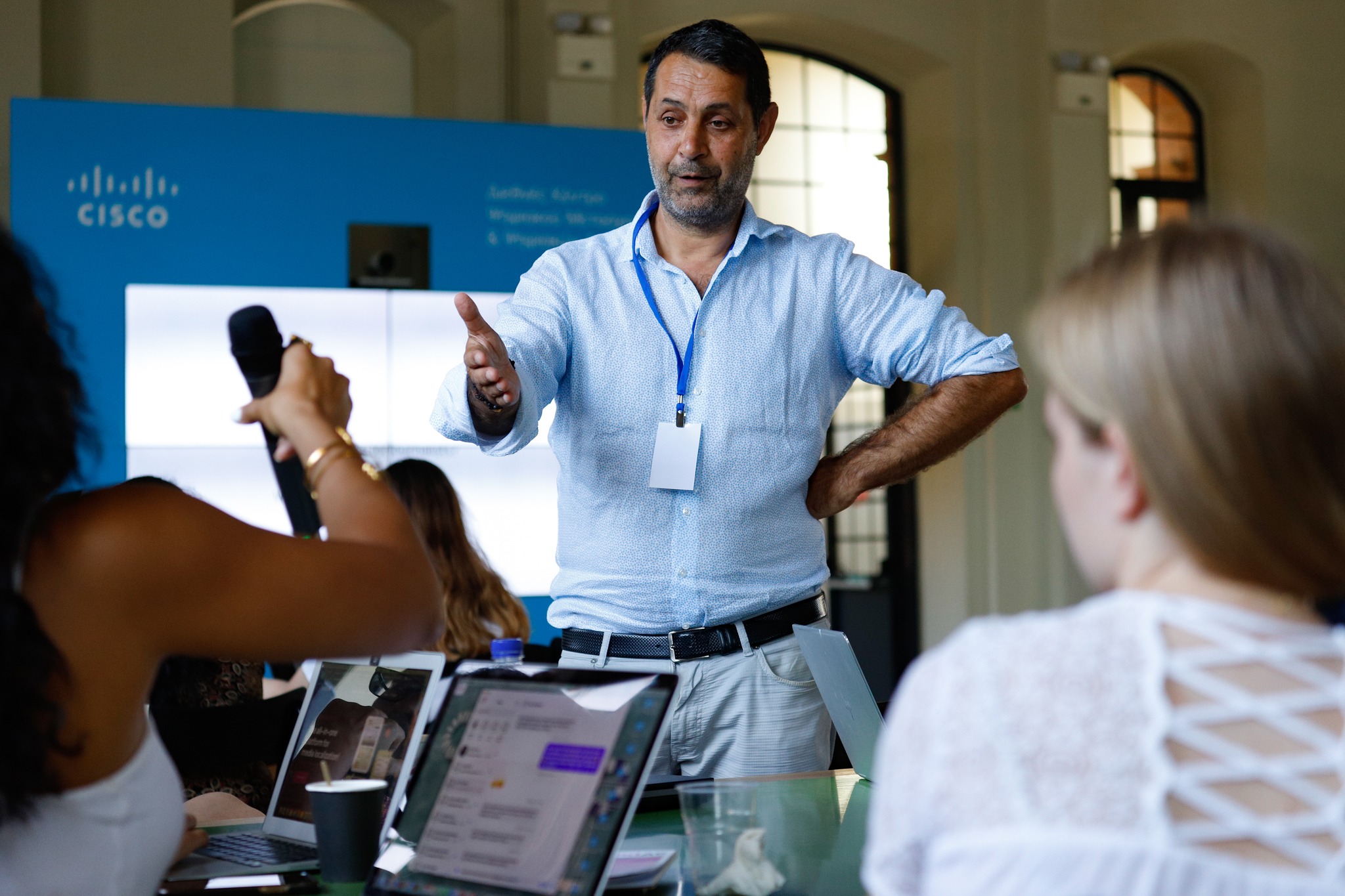
Furthermore, Andreas presented examples of AI-manipulated videos, showing movie scenes where AI programs altered actors' faces or dubbed them in different languages. These demonstrations illustrated the difficulty in discerning real from manipulated content.
In conclusion, Andreas posited that AI's role is to unleash the creative potential of journalists, allowing them to work alongside AI to save time and produce innovative content.
Overall, the 7th Thessaloniki International Media Summer Academy was a confluence of great minds, fostering rich discussions and exchanges of perspectives, opinions, and expertise in the media field.


